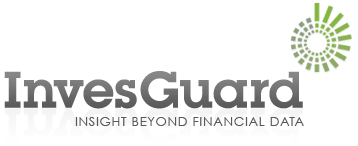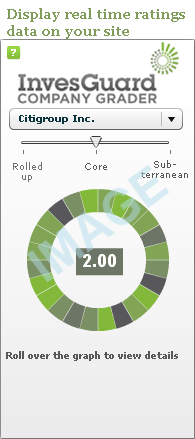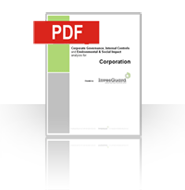-
Advantages of SubscriptionSubscription provides you the right to use all 3 levels of data.
The third and most detailed level of data which is available only to subscribers provides the most comprehensive explanation of the rating profile of companies in our database. It will provide you with information on why we think the Board Effectiveness of a company is weak or why the Audit Committee of a company can probably do better. This information may be that key element that you need over and above critical financial data to give you a complete corporate picture.
For additional information on why you should use InvesGuard please click here.
blog:
Guarding Investments one post at a time
Bernanke +Feinberg = Board Compensation Committee
Last week saw a flurry of activity from the Obama administration’s specially appointed paymaster, Kenneth Feinberg as well as pay review measures from Mr.Bernanke of the Federal Reserve. The pay directives from both these sources attempt to curb excessive risk taking by limiting compensation that is tied to risk taking. The federal reserve directive is going to affect all the companies that it holds jurisdiction over while the pay Czar controls compensation for the highest earning executives at the 7 companies getting “exceptional financial aid”.
Plenty has been said of the sheer “socialist” nature of such pay oversight. But opponents of such external pay regulation need to review the current level of self regulation which is zero… zilch…nada.
Executive compensation details are designed by the Board of Directors’ compensation committee. One would expect that besides appointing an external consultant to aid in the development of a compensation structure , there would be a greater input from the Board members themselves to ensure that compensation does not encourage excessive risk taking. Why has it come to the point where external regulatory bodies have to ‘hand hold’ compensation officers and Board members to put them on the right track? Wasn’t that included in the responsibilities of the Board Compensation Committee?
But the most pressing matter that comes to mind is whether this is going in the right direction which is away from a repeat financial apocalypse?
According to the Federal Reserve “Flaws in incentive compensation practices were one of many factors contributing to the financial crisis”. Although this factor has been addressed, how soon should we expect other critical contributing factors to be dealt with?
On the matter of self pay regulation, Credit Suisse became the first bank to announce sweeping changes in its executive compensation structure. By increasing base salary and changing the components of deferred compensation, bank officials have attempted to bring about a positive change in executive compensation. Deferred cash compensation will vest over three years and will be adjusted annually based on Credit Suisse's return on equity and business performance. The deferred stock compensation will vest over four years and may increase depending on Credit Suisse's share price and its return on equity over those years. These changes will not be applicable to employees at the vice-president positions and lower. Another meaningful change was the introduction of minimum share ownership requirements for executives.
Tuesday
October 27
Xerox Q3 2009 Earnings
Xerox announced its Q3 2009 earnings on October 22nd.
To make short work of Xerox’s Q3 earnings, here is a list of key figures:
Basic EPS down to $0.14 for 3 months ended September 30, 2009 from $0.30 for the same period ended September 30, 2008.
Total Revenues at $3.7 billion are down 16 percent from third-quarter 2008
Equipment sale revenue declined 29 percent
Xerox has taken a charge of $9 million over its previously announced pending acquisition of ACS.
Restructuring and other cost actions including reduction in marketing and commission contributed to a third-quarter selling, administrative and general expenses (SAG) reducing year over year by $131 million.
However, even with reduced SAG expenses, SAG as a percentage of revenue for Q3 2009 has increased to 27.4% as compared to the same period 2008 which stood at 26.04%.
Bad Debts continued to be 1% of receivables.
As with most earnings announcements these days, Xerox too has attributed cost savings to employment reductions. Employment at September 30, 2009 stood at 54,100 decreased by 3000 as compared to December 31 2008.
CEO Ursula Burns expressed her confidence in the pending ACS acquisition to give Xerox the “revenue growth, cash and earnings expansion”.
In spite of the bleak earnings report, Xerox has increased its full year earnings expectations to 55 to 57 cents for the year, excluding ACS acquisition costs.
On the Governance front, concerns exist over a lack of a specific Board level oversight on R&D matters. In addition, CEO Ursula Burns is also on the Board of another public company. Glenn Britt another Board Xerox Board member on the Audit Committee is also the CEO of Time Warner Cable. Taking on additional responsibility as a Board member of another public company runs the risk of making the CEO incapable of concentrating on either of these responsibilities.
Board Interlocks with Time Warner Cable Inc. as well as Procter and Gamble are a cause of concern. The CEO of both these companies is on Xerox’s Board whereas other members of Xerox’s Board are on the Board of these 2 companies.
For more on Xerox’s governance rating, click FREE Registrationtoday.
Thursday
October 22





